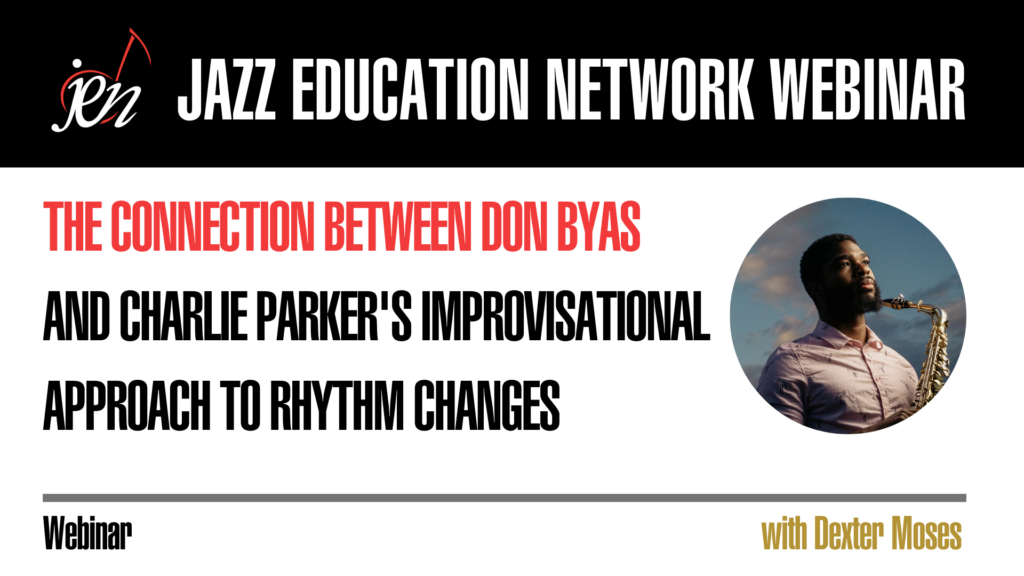Carlos Wesley “Don” Byas, tenor saxophonist, was regarded by his peers as a pivotal figure in the development of bebop. Even though his roots were in the swing era, he was open to new harmonic possibilities explored by the likes of Charlie Parker and Dizzy Gillespie. Musicians during the bebop era (mid-1940s) would embellish popular song forms at the time, most notably “I Got Rhythm” (Rhythm Changes). Parker and Gillespie are among the few credited with the creation of bebop, but Byas is left out of the conversa- tion. However, On November 2nd, 1944, jazz enthusiast Timmie Rosenkranz recorded Byas and Stewart playing “I Got Rhythm” in his apartment. Due to the recording ban of 1942–1944, early bebop was substantially undocumented, therefore, the recording made by Rosenkranz showcases the earliest bebop improvisation played over rhythm changes at 300 beats per minute based on discography records. I will compare three choruses of improvisation from Don Byas’s 1944 recording of “I Got Rhythm” to three choruses of Charlie Parker’s 1950 live recording of “Anthropology.” I am looking at how they use the following techniques in both of their solos: chromaticism, chord substitutions, and use of non-diatonic chord extensions.
ABOUT DEXTER MOSES
Dexter Moses is a saxophonist, composer, and educator from Richmond, Virginia. He is an alumnus of North Carolina Central University with a BM in Jazz Studies (2021) and MM in Jazz Composition and Arranging (2023). In addition to leading his own group, the Dexter Moses Quartet, he has performed and/or recorded with top leaders on their respectful instruments and voices, including Branford Marsalis, Delfeayo Marsalis and the Uptown Jazz Orchestra, Joey Calderazzo, Nneena Freelon, Charles Tolliver, James “Saxsmo” Gates, Desirée Roots Centeio, Billy Williams, and many more. As an educator he teaches private lessons in saxophone, clarinet, and flute. As part of his teaching phi- losophy, he expects students to not only become competent musicians, but to have them grow as well-rounded, disciplined, and creative individuals.

